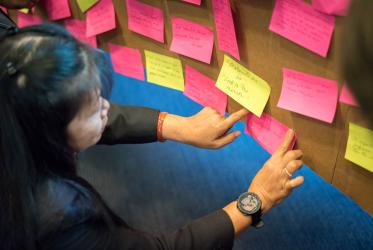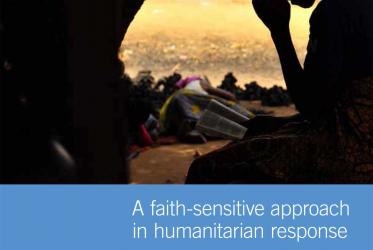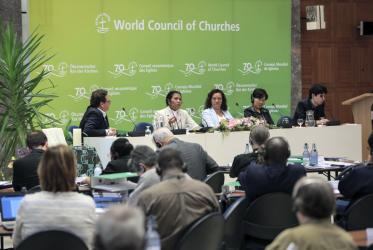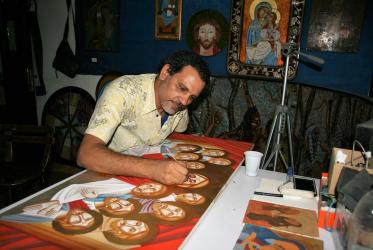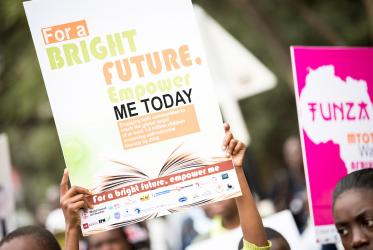Displaying 101 - 120 of 222
02 August 2018
Working toward an AIDS-free generation
26 July 2018
WCC mourns passing of Calle Almedal
11 June 2018
Congolese churches respond to Ebola outbreak
01 June 2018
WCC calls for Global Day of Prayer to End Famine
31 May 2018
At CSW62, “stories are the heartbeat”
21 March 2018
Voices from Colombia: “What if we have no land to till?”
15 February 2018
Conversation on HIV “must continue,” Faith Networking Zone shows
07 December 2017



